Corona Viruses Disease - CoronaVirus (COVID 19)
Coronaviruses are a family of viruses that can cause illnesses such as the common cold, severe acute respiratory syndrome (SARS) and Middle East respiratory syndrome (MERS). In 2019, a new coronavirus was identified as the cause of a disease outbreak that originated in China.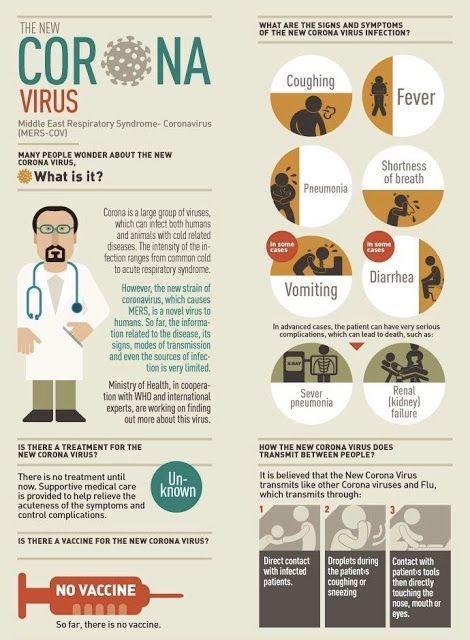
The virus is now known as the severe acute respiratory syndrome coronavirus 2 (SARS-CoV-2). The disease it causes is called coronavirus disease 2019 (COVID-19).
Cases of COVID-19 have been reported in a growing number of countries, including the U.S. Public health groups, such as the World Health Organization (WHO) and the U.S. Centers for Disease Control and Prevention (CDC), are monitoring the situation and posting updates on their websites. WHO declared a global pandemic in March 2020. These groups have also issued recommendations for preventing and treating the illness.
Symptoms
Signs and symptoms of COVID-19 may appear two to 14 days after exposure and can include:
- Fever
- Cough
- Shortness of breath or difficulty breathing
Other symptoms can include:
- Tiredness
- Aches
- Runny nose
- Sore throat
The severity of COVID-19 symptoms can range from very mild to severe. Some people have no symptoms. People who are older or have existing chronic medical conditions, such as heart or lung disease or diabetes, may be at higher risk of serious illness. This is similar to what is seen with other respiratory illnesses, such as influenza.
When to see a doctor
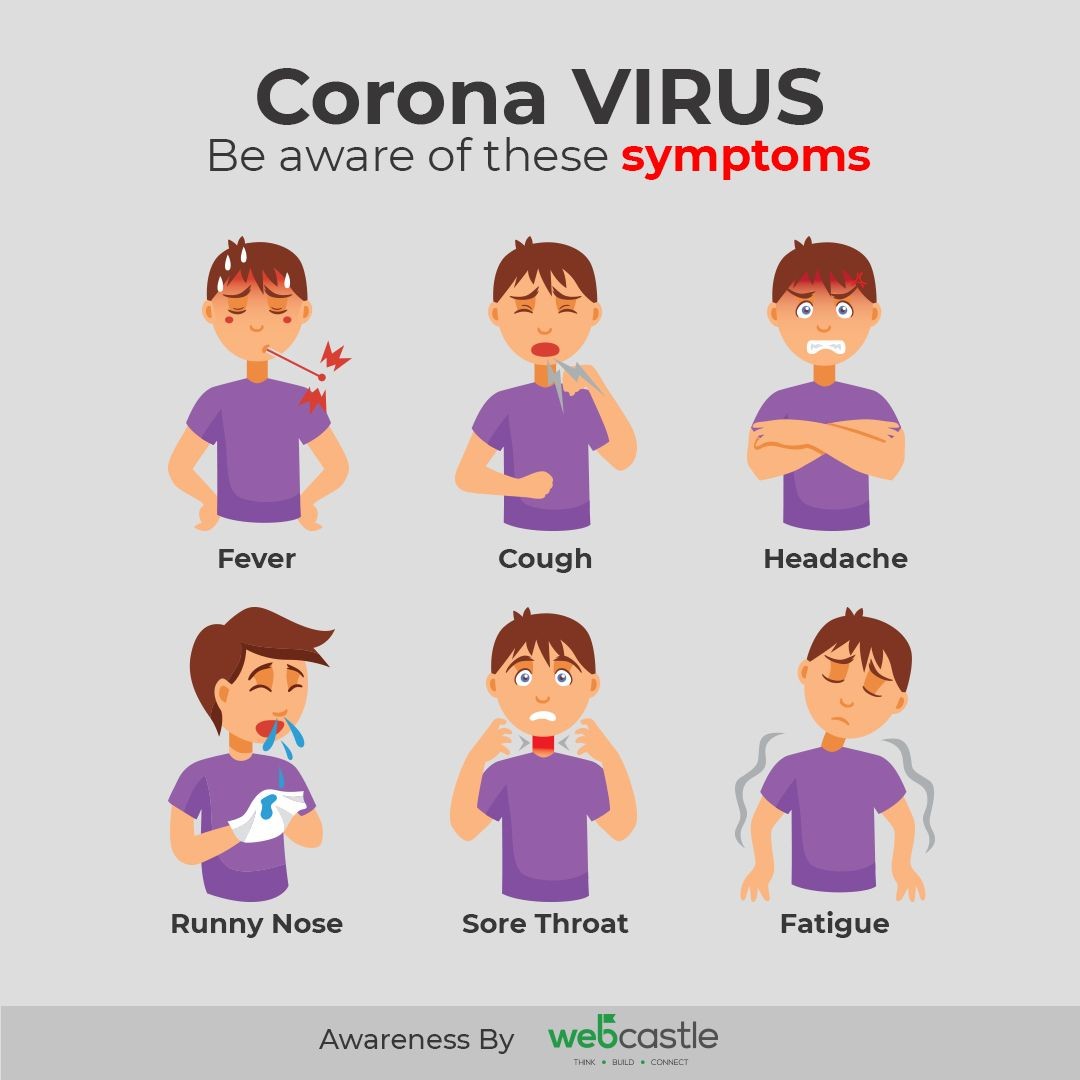
Contact your doctor or clinic right away if you have COVID-19 symptoms, you've been exposed to someone with COVID-19, or you live in or have traveled from an area with ongoing community spread of COVID-19 as determined by CDC and WHO. Call your doctor ahead to tell him or her about your symptoms and recent travels and possible exposure before you go to your appointment.
Anyone with respiratory symptoms who hasn't been in an area with ongoing community spread can contact his or her doctor or clinic for further recommendations and guidance. Let your doctor know if you have other chronic medical conditions. As the pandemic progresses, it's important to make sure health care is available for those in greatest need.
Causes
It's unclear exactly how contagious the new coronavirus is. It appears to spread from person to person among those in close contact. It may be spread by respiratory droplets released when someone with the virus coughs or sneezes.
It may also be spread if a person touches a surface with the virus on it and then touches his or her mouth, nose or eyes.
Risk factors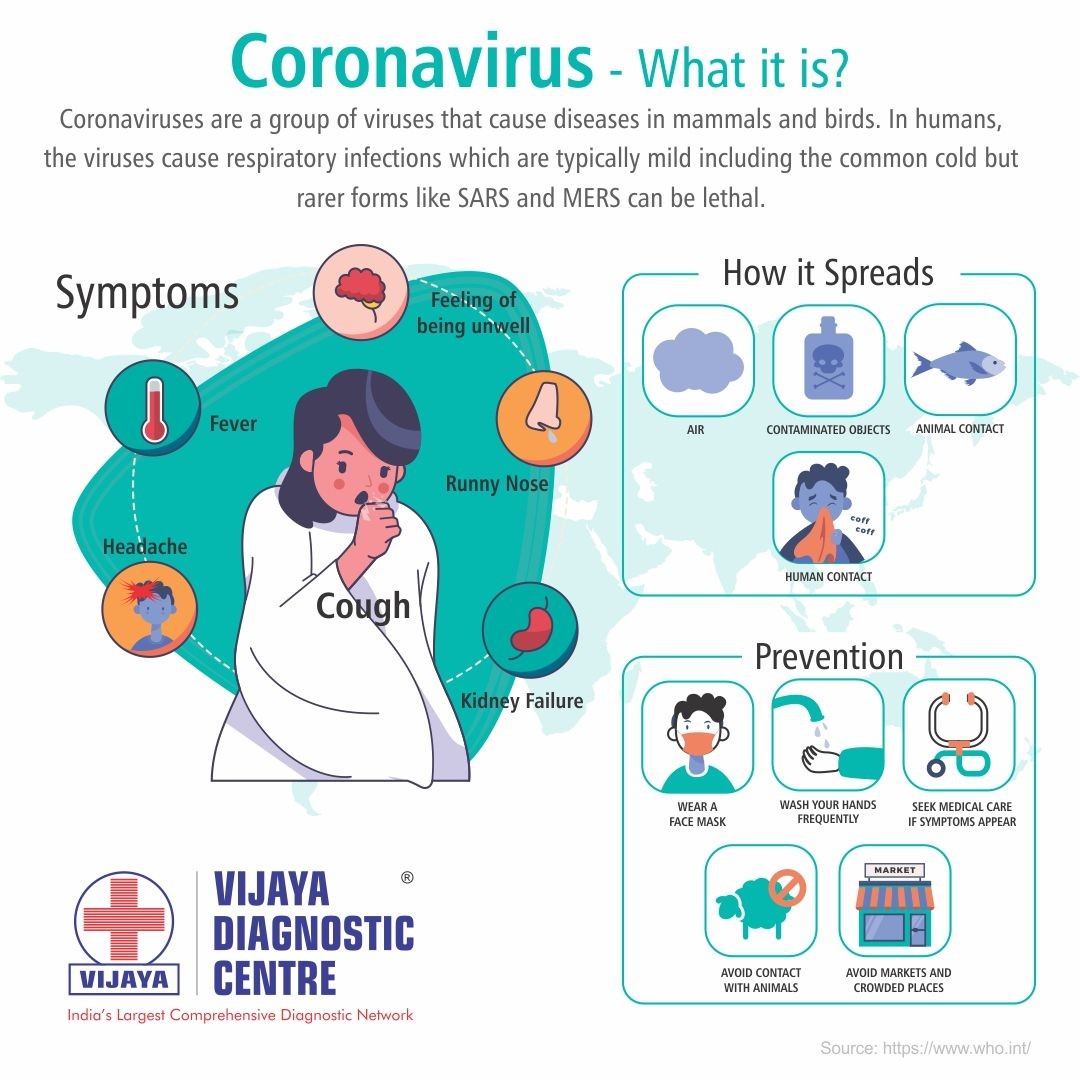
Risk factors for COVID-19 appear to include:
- Recent travel from or residence in an area with ongoing community spread of COVID-19 as determined by CDC or WHO
- Close contact with someone who has COVID-19 — such as when a family member or health care worker takes care of an infected person
Complications
Complications can include:
- Pneumonia in both lungs
- Organ failure in several organs
- Death
Diagnosis
If you develop symptoms of coronavirus disease 2019 (COVID-19) and you've been exposed to the virus, contact your doctor. Tell him or her if you've traveled to any areas with ongoing community spread of COVID-19 according to CDC and WHO. Also let your doctor know if you've had close contact with anyone who has been diagnosed with COVID-19.
Your doctor may determine whether to conduct tests for COVID-19 based on your signs and symptoms. To decide whether to conduct tests for COVID-19, he or she may also consider whether you have had close contact with someone diagnosed with COVID-19 or traveled to or lived in any areas with ongoing community spread of COVID-19 in the last 14 days.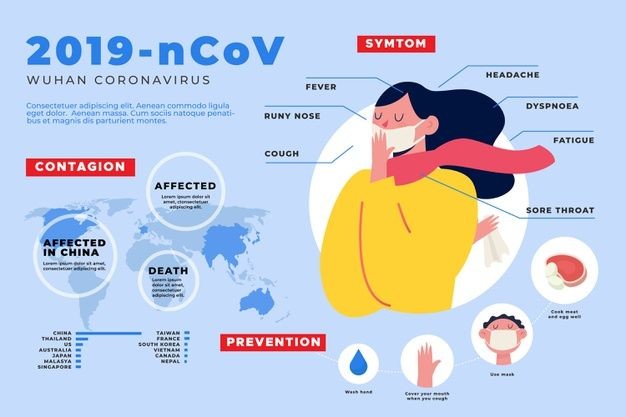
To test for COVID-19, your doctor may take samples, including a sample of saliva (sputum), a nasal swab and a throat swab, to send to a lab for testing.
Treatment
Currently, no antiviral medication is recommended to treatCOVID-19. Treatment is directed at relieving symptoms and may include:
- Pain relievers (ibuprofen or acetaminophen)
- Cough syrup or medication
- Rest
- Fluid intake
If your doctor thinks you can be treated at home, he or she may give you special instructions, such as to isolate yourself as much as possible from family and pets while you're sick and to stay home for a period of time. If you're very ill, you may need to be treated in the hospital.
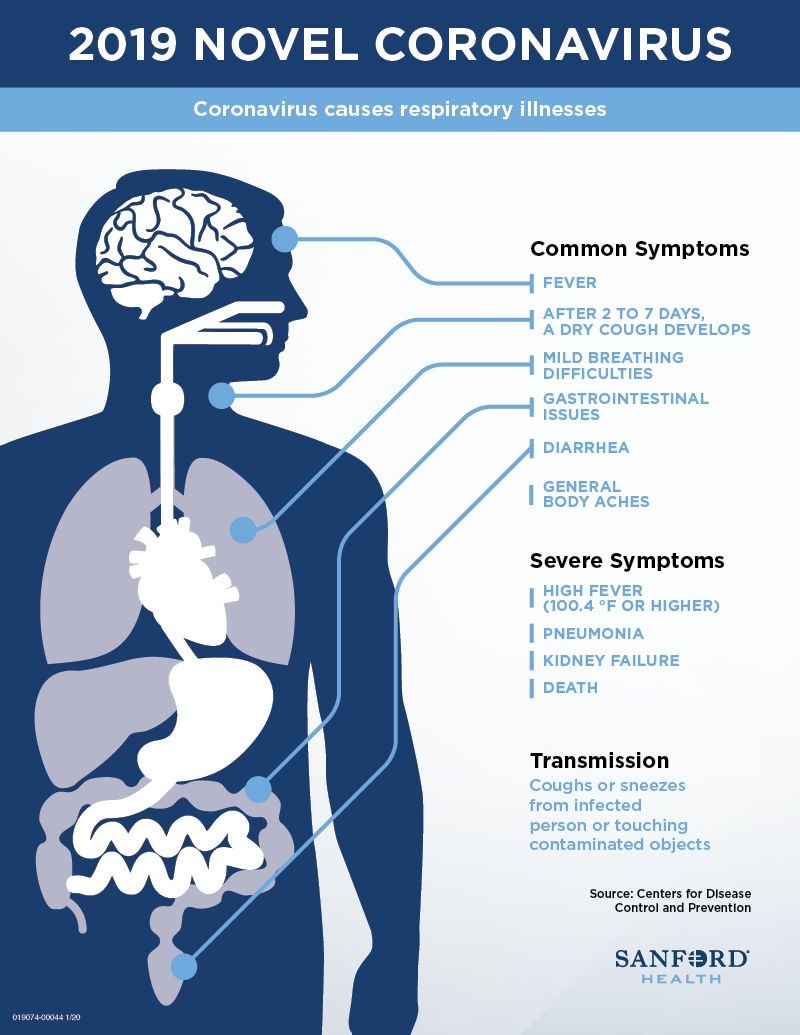







 Pregnancy Due Date Calculator
Pregnancy Due Date Calculator
 Chinese Gender Predictor
Chinese Gender Predictor
 Ovulation Calculator
Ovulation Calculator
 IVF Due Date Calculator
IVF Due Date Calculator
